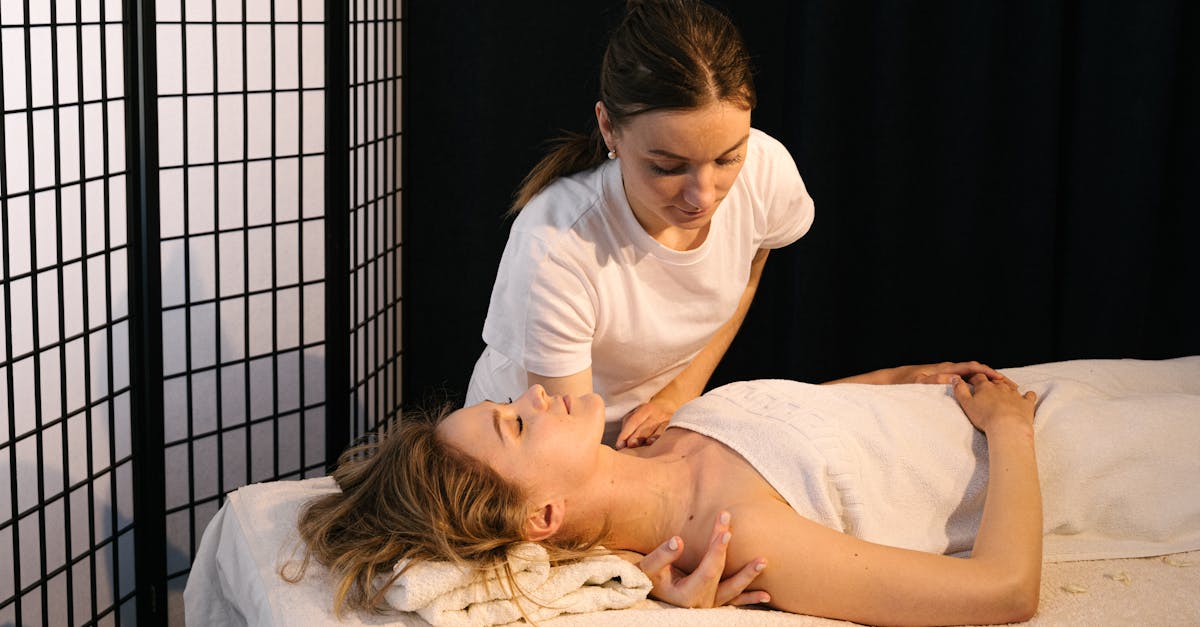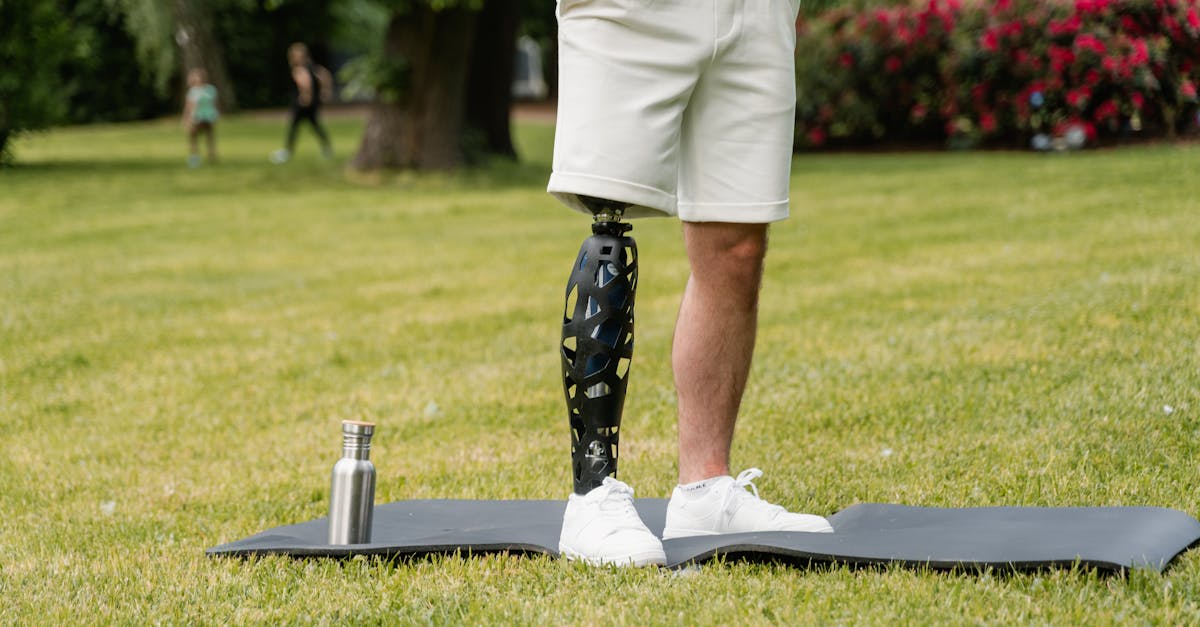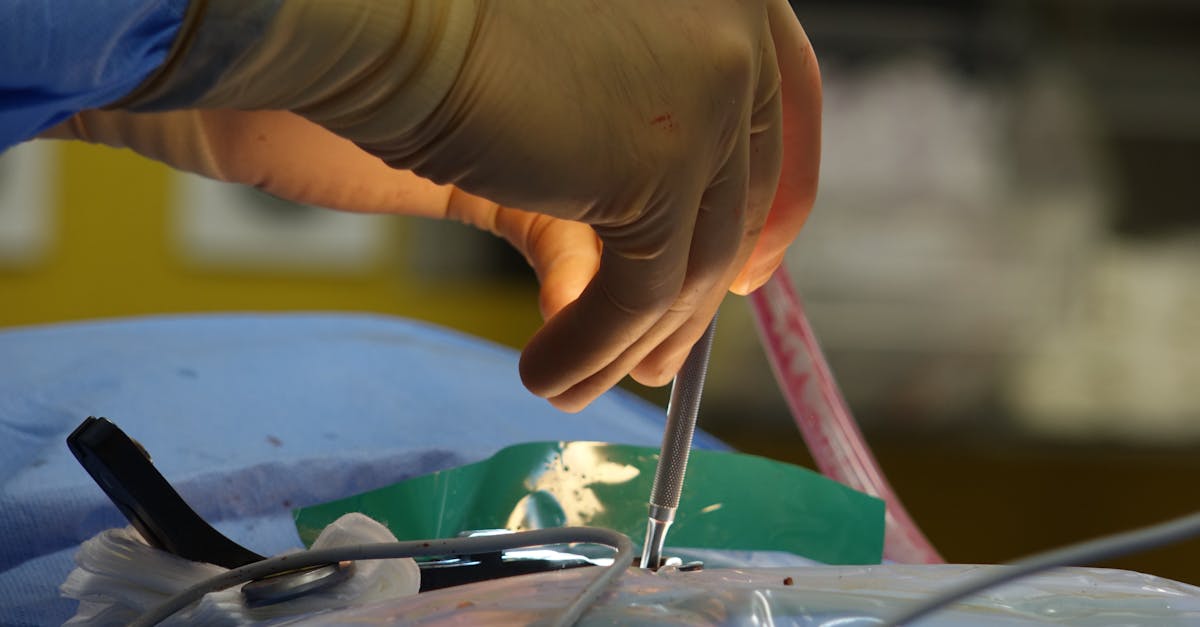|
In Short, enhancing shoulder health through functional medicine is an innovative approach that offers effective solutions for individuals experiencing shoulder pain and discomfort. This method integrates personalized therapies, nutrition support, and integrative practices to promote overall recovery and wellness. By addressing the root causes of shoulder issues rather than merely alleviating symptoms, this approach allows for reduced inflammation, improved mobility, and better quality of life. Functionally oriented strategies, like rehabilitation exercises and nutritional interventions, empower individuals to regain control of their health, strengthening their shoulder and enhancing daily functionality. |
Enhancing shoulder health through functional medicine approaches involves a holistic and personalized strategy that targets the underlying causes of shoulder pain and dysfunction. This methodology emphasizes a combination of nutritional support, integrative therapies, and tailored rehabilitation exercises that promote healing and improve overall joint function. By addressing issues such as inflammation, joint instability, and muscle weakness, individuals can achieve enhanced mobility and reduced pain, ultimately leading to a more active and fulfilling lifestyle.

Discover Your Path to Optimal Wellness with Pulse Align
At Pulse Align, we offer a gentle and innovative method that helps restore your body’s natural balance and posture through subtle, imperceptible pulses. This unique approach promotes muscle tone symmetry and overall well-being, allowing clients to enjoy life with increased ease and comfort. Experience a more relaxed and balanced state without the use or suggestion of direct medical interventions.
Recalibration for Enhanced Comfort and Balance
Pulse Align focuses on facilitating your body’s innate ability to recalibrate naturally. By gently encouraging your body to return to its optimal function, we support improved posture and the alignment of muscle tone. This holistic perspective allows for an enhanced sense of comfort, enabling clients to engage fully in their daily activities with reduced tension and enhanced balance.
Personalized Wellness Journey
Our approach is tailored to meet the unique needs of each client. Many have shared their experiences of notable improvements in postural balance and overall wellness after engaging with our services. Testimonials highlight benefits such as significant relief from discomfort in the neck and back and improvements in general mobility, allowing individuals to embrace a healthier lifestyle.
Explore Your Wellness Options at Pulse Align
We invite you to visit the Pulse Align website to learn more about our unique services and find nearby locations such as La Prairie, Mont-Royal, and Terrebonne. Schedule a consultation for yourself or your family today! Remember, Pulse Align is designed to complement, not replace, your healthcare services, and we encourage clients to remain engaged with their healthcare team. Enjoy a *safe, non-invasive, and family-friendly approach* as you journey toward better well-being!
Medical Disclaimer
The information provided on this site complements but does not replace medical care. It is important for clients to consult with their healthcare team for any medical conditions or concerns. All reported improvements stem from the body’s natural ability to restore balance, not from direct actions taken by Pulse Align.
- Multi-faceted Strategies: Integrated therapies addressing root causes rather than just symptoms.
- Nutrition Focus: Emphasis on anti-inflammatory diets to promote joint health.
- Personalized Treatment: Tailored interventions based on individual needs and conditions.
- Rehabilitation Techniques: Targeted exercises to restore mobility and strengthen surrounding muscles.
- Mind-Body Practices: Incorporating mindfulness and relaxation techniques to manage stress and improve recovery.
- Collaborative Care: Working alongside healthcare teams to ensure comprehensive wellness.
- Innovative Therapies: Use of regenerative medicine and advanced therapeutic technologies.

Shoulder pain affects countless individuals, often hindering daily activities and diminishing overall quality of life. Traditional treatment methods frequently focus on symptom relief rather than addressing underlying causes. This article explores how functional medicine approaches provide a comprehensive framework to enhance shoulder health, incorporating personalized therapies, dietary strategies, and integrative techniques designed to restore balance and facilitate healing.
Understanding the Role of Functional Medicine
Functional medicine takes a holistic approach, aiming to identify and address the root causes of health issues rather than merely alleviating symptoms. In the context of shoulder health, this methodology emphasizes understanding individual patient histories, lifestyles, and genetic predispositions. By analyzing these factors, practitioners can develop tailored interventions that address specific pain triggers and promote long-term recovery.
Personalized Treatment Plans
A key component of functional medicine is the development of personalized treatment plans. These plans aim to restore optimal shoulder function through a combination of physical therapy, manual therapy, and exercise regimes specifically designed for individual needs. Treatments may include personalized rehabilitation exercises, which not only strengthen surrounding muscles but also enhance mobility and flexibility. By focusing on targeted strategies, patients can regain their strength while reducing the risk of future injuries.
Nutritional Support for Joint Health
Nutrition plays a critical role in maintaining shoulder health. Implementing an anti-inflammatory diet can significantly decrease the inflammation that contributes to pain and discomfort. Emphasizing whole foods, such as fruits, vegetables, whole grains, and fatty fish, can enrich the body with essential nutrients that promote healing. Additionally, specific supplements, such as collagen and omega-3 fatty acids, can support joint integrity and facilitate recovery in those suffering from shoulder issues.
Integrative Therapy Techniques
Functional medicine recognizes the importance of integrating various therapeutic approaches to improve shoulder health. Techniques such as physical therapy, acupuncture, and massage can provide synergistic benefits when paired with tailored exercise programs. These integrative therapies not only help alleviate existing pain but also encourage ongoing healing by addressing the underlying issues contributing to shoulder discomfort.
Enhancing Movement and Mobility
Increasing shoulder mobility is essential for overall well-being. Specific exercises designed to enhance range of motion, including gentle stretching and mobility drills, can facilitate the recovery process. Functional movements that focus on stability and balance are also crucial, as they help stabilize the shoulder and prevent injury recurrence. Engaging in such activities fosters a fundamental change in how the body functions, promoting a more active, healthy lifestyle.
Mind-Body Connection
In functional medicine, the mind-body connection is recognized as an influential factor in healing. Stress can exacerbate pain and tension in the shoulder area. Techniques such as mindfulness meditation, yoga, and breathwork can aid individuals in managing stress, allowing for a more relaxed state that benefits recovery. Cultivating a positive mindset can significantly enhance the healing process, empowering individuals to take control of their shoulder health.
Community and Support Systems
Functional medicine also emphasizes the importance of a supportive community. Engaging with peers who understand the challenges of managing shoulder pain can provide encouragement and motivate individuals to stay committed to their health journeys. By fostering environments centered on shared experiences, patients can enhance their resilience and emotional well-being, which ultimately contributes to improved physical health.
| Functional Medicine Approach | Benefits for Shoulder Health |
|---|---|
| Nutritional Support | Promotes joint health through an anti-inflammatory diet, supporting recovery and natural healing processes. |
| Physical Therapy | Utilizes personalized exercises to enhance strength and flexibility, supporting the body’s natural balance. |
| Integrative Therapies | Incorporates techniques that encourage healing and promote overall wellness without targeted medical intervention. |
| Mind-Body Connection | Enhances mental well-being through practices that foster relaxation and mindfulness, promoting equilibrium. |
| Regenerative Practices | Facilitates natural recuperation by allowing the body to recalibrate and restore its own balance. |
| Holistic Approach | Adds a comprehensive view by considering lifestyle factors that may affect shoulder health. |
| Movement Practices | Encourages functional movements that elevate mobility and enhance the body’s ability to function. |
| Community Support | Creates an environment for shared experiences that enhance motivation and resilience. |
| Stress Management | Incorporates strategies to alleviate tension, supporting natural body alignment and overall vitality. |
| Personalized Care | Ensures individualized plans that resonate with each client’s unique needs, enhancing overall wellness. |

Transformative Wellness Journeys with Pulse Align
Many clients have shared their transformative experiences while enhancing their shoulder health through the functional medicine approaches offered at Pulse Align. This unique method focuses on supporting the body’s inherent ability to recalibrate and restore balance, allowing individuals to experience significant improvements naturally.
For instance, clients in La Prairie have expressed immense gratitude for the non-invasive techniques utilized at Pulse Align, noting how the gentle pulses they received fostered a supportive environment for muscle relaxation and enhanced overall mobility. The holistic approach not only relieved their shoulder pain but also improved their posture, offering a sense of newfound vitality in their daily lives.
In Mont-Royal, numerous individuals have reported similar positive feedback. They emphasize that the regenerative methods employed in their sessions facilitated a remarkable journey towards wellness, helping them engage with activities they previously enjoyed without discomfort. The clients appreciate how Pulse Align complements their healthcare plans to achieve optimal body function.
Clients in Terrebonne have shared stories of reclaiming their independence after experiencing prolonged shoulder difficulties. The strategies focused on integrating therapeutic exercises and lifestyle adjustments led to noticeable results, allowing them to participate more actively in family and community activities.
Those residing in areas like Les Escoumins and Deux-Montagnes also benefit from the personalized care available at Pulse Align. Many have described the feeling of empowerment they gained through this holistic recovery approach, appreciating how it emphasizes preventive measures as vital components in their wellness journeys.
Particularly in Sainte-Marie and Chicoutimi, clients have endorsed the combination of physical therapy and nutritional support as effective complements to their treatment plans. They notice an enhanced quality of life that stems from addressing the root causes of discomfort rather than merely alleviating symptoms.
In Châteauguay and Saint-Jérôme, the enthusiasm surrounding Pulse Align’s services continues to grow. Clients often highlight their satisfaction with how the clinic collaborates with their healthcare teams, ensuring a seamless experience on the path toward renewed wellness.
For those seeking to explore these benefits and address shoulder health concerns, we invite you to find a nearby location by visiting Our Clinics. At Pulse Align, we are dedicated to supporting clients and their families on their journey toward optimal health while ensuring a holistic approach to healing is at the forefront of our services.
Dr. Sylvain Desforges is a renowned figure in the domain of integrative healthcare, distinguished for his expertise in osteopathy, naturopathy, and manual medicine. As the founding president of the TAGMED clinics and the ACMA association, he has dedicated his career to innovating healthcare practices that prioritize patient outcomes. His extensive background allows him to address complex health issues, particularly concerning chronic pain management, through a multifaceted lens that merges traditional knowledge with modern advancements.
One of the significant aspects of Dr. Desforges’s work is his commitment to enhancing shoulder health, which is often a critical area for individuals experiencing pain and discomfort. Recognizing the multifactorial nature of shoulder pain, his approach is rooted in identifying and addressing the underlying causes rather than solely alleviating symptoms. This perspective aligns perfectly with functional medicine principles, which emphasize holistic treatment tailored to the individual’s unique needs.
At TAGMED clinics, located in Montréal, Terrebonne, and Mont-Royal, Dr. Desforges employs advanced technologies such as spinal decompression, laser therapy, and shockwave therapy within his treatment modalities. These innovative tools effectively alleviate pain, promote healing, and enhance mobility in patients suffering from various shoulder conditions. For instance, spinal decompression works by reducing pressure on the intervertebral discs and surrounding nerve roots, enabling better circulation and aiding recovery from injuries.
Additionally, Dr. Desforges places a strong emphasis on evidence-based care. By integrating the latest research and technological advances into his practice, he ensures that each treatment aligns with best practices in healthcare. This commitment to continual learning allows him to offer patients the most effective solutions for their shoulder ailments, thus optimizing their overall health and well-being.
Nutrition is another crucial component of enhancing shoulder health, as Dr. Desforges advocates for personalized dietary plans that focus on anti-inflammatory foods and essential nutrients. By emphasizing the role of nutrition in healing and recovery, he provides comprehensive support to his patients, enabling them to take charge of their health through informed dietary choices. This aspect of his approach is fundamental in fostering a holistic view of health, which is central to functional medicine.
Furthermore, rehabilitation and the incorporation of tailored exercise regimens are integral to Dr. Desforges’s strategy for shoulder health. These regimens focus on strengthening the *rotator cuff* and surrounding musculature, improving flexibility, and enhancing overall functional movement. By engaging patients in their recovery process and encouraging active participation, he ensures that they are equipped with the necessary tools to maintain their health long-term.
Dr. Sylvain Desforges’s approach to shoulder health embodies a comprehensive strategy that amalgamates innovative technologies, nutritional guidance, and individualized care. His dedication to enhancing the quality of life for his patients through effective and holistic treatment reflects his commitment to excellence in healthcare. To understand more about his methods and the services offered at TAGMED clinics, patients can explore additional information online. Dr. Desforges continues to be a leading advocate for patients seeking relief from pain, striving to foster an environment of healing and recovery.
Neurospinal Decompression Technology by TAGMED
Mecanism of Action
The neurospinal decompression technology offered by TAGMED operates through the application of controlled and progressive traction force on the spinal column. This technique creates an optimal spinal decompression effect, effectively increasing the space between the vertebrae. By doing so, it reduces the pressure on intervertebral discs and nerve roots, allowing for enhanced circulation of fluids within the targeted area. This reduction in pressure plays a critical role in alleviating inflammation and thus providing significant pain relief.
Specific Benefits
This non-invasive method can effectively relieve chronic pain and associated symptoms arising from conditions such as herniated discs, bulging discs, and moderate to severe spinal or foraminal stenosis. By specifically targeting the pressures exerted on nerve structures and optimizing the circulation of fluids surrounding the discs, neurospinal decompression promotes faster recovery times and significantly improves the overall quality of life for a broad range of patients. Additionally, the alleviation of pressure reduces the likelihood of pain, numbness, and weakness frequently related to these conditions.
Comparison with Other Treatments
When juxtaposing TAGMED’s neurospinal decompression technology with traditional treatment approaches, such as painkillers, corticosteroid injections, traditional physical therapy, and even surgical interventions, the advantages of neurospinal decompression become evident. Unlike invasive surgical options that carry significant risks, neurospinal decompression minimizes these dangers, providing an effective alternative to medication—which often comes with adverse side effects. Most notably, patients can experience a generally faster recovery period, allowing them to resume daily activities with minimal interruption.
Case Studies and Testimonials
Numerous patients have reported substantial improvements following treatment with TAGMED’s neurospinal decompression technology. For example, a patient suffering from chronic pain associated with a herniated disc experienced a marked decrease in symptoms after just a few sessions and was able to return to normal activities much sooner than anticipated. Feedback highlights the treatment’s effectiveness in providing long-term relief, significantly reducing the need for pharmacological interventions. These compelling narratives reflect the growing acceptance of decompression technology as a viable solution for managing debilitating pain and restoring functional mobility.
Addressing shoulder health effectively involves understanding both the underlying causes of pain and the holistic strategies that can facilitate recovery. Functional medicine offers an integrated approach, focusing on individual patient experiences and the complex interplay between lifestyle, nutrition, and various therapeutic modalities.
The emphasis on identifying the root causes of shoulder pain rather than just alleviating symptoms differentiates functional medicine from conventional treatments. This model fosters improved patient outcomes by utilizing various supportive techniques such as regenerative medicine, therapeutic exercises, and nutrition guidance. By engaging patients in their care, they not only receive direct interventions but also become active participants in their healing journey.
Nutritional interventions play a crucial role in promoting joint health. Incorporating anti-inflammatory foods and supplements like collagen can significantly contribute to enhancing the structural integrity of the shoulder joint. Additionally, strategies that include tailored exercise programs focusing on strengthening the support around the joint help in maintaining stability and improving mobility, which are essential elements in preventing future injuries.
Furthermore, the inclusion of integrative therapies such as physical therapy and mindfulness practices enriches the overall treatment plan, addressing both physical and emotional aspects that often accompany chronic pain. This multidimensional perspective nurtures a more profound sense of well-being and empowers individuals to reclaim their daily lives.
In essence, the compassionate and comprehensive framework of functional medicine serves to enhance shoulder health by delivering personalized care strategies. This approach not only alleviates discomfort but also fosters long-term wellness, encouraging individuals to engage fully in all aspects of their lives.

Do you suffer from discomfort that responds little or not at all to conservative methods?
Welcome to Pulse Align, where we offer a unique and non-invasive approach to enhancing overall wellness. Our innovative method utilizes gentle, imperceptible pulses to help restore the body’s natural balance and posture. By focusing on enhancing muscle tone symmetry, our clients often discover a noticeable reduction in tension and discomfort. This natural approach invites individuals to experience improved comfort and functional balance.
At Pulse Align, we understand that health isn’t just about addressing discomfort; instead, we aim to help your body recalibrate naturally. Rather than focusing on direct interventions for symptoms, our clients frequently report amazing improvements in their overall comfort and posture, enabling them to engage more fully in life. This gentle way of promoting balance aligns seamlessly with the body’s innate ability to find equilibrium without imposing direct treatments or diagnoses.
Personalization is at the core of our approach. We have heard countless testimonials from clients who have experienced significant enhancements in their sense of well-being. From relief in neck and back tension to improved feelings of stability and wellness, many have felt a positive transformation in their daily lives. They often express gratitude for our welcoming environment where they can explore wellness solutions suitable for the entire family—including children and expectant mothers.
We invite you to discover more about Pulse Align and how you can start your wellness journey by visiting our website. With convenient locations in La Prairie, Mont-Royal, Terrebonne, and more, it’s easy to find a nearby clinic. Book a consultation for yourself or your family and experience our safe, non-invasive services designed to enhance your overall wellness. Remember, while Pulse Align complements your wellness journey, it is important to maintain connections with your healthcare team.
To learn more about our services and book an appointment, visit our website: Pulse Align.
Frequently Asked Questions
Shoulder Pain
Are cortisone injections effective?
They can temporarily relieve pain and inflammation, but are not a permanent solution.
Should I apply ice directly on the skin?
No, wrap the ice in a clean cloth to avoid skin burns.
Can rheumatoid arthritis affect the shoulder?
Yes, rheumatoid arthritis, an inflammatory disease, can affect the shoulder causing pain and stiffness.
How do I know if my shoulder pain is serious?
If the pain lasts several weeks, severely limits movement, or is accompanied by swelling, redness, or deformity, seek medical attention.
Can acupuncture help?
Acupuncture may relieve pain and muscle tension, but effectiveness varies among individuals.
Do stretches help relieve shoulder pain?
Regular, gentle stretching can improve joint flexibility and reduce muscle tension around the shoulder.
Should athletes strengthen their rotator cuff?
Yes, specific exercises to strengthen the rotator cuff are often recommended for athletes.
Can a shoulder dislocation cause chronic pain?
Yes, a poorly managed or repeated dislocation can lead to instability and long-term shoulder pain.
Can massages relieve shoulder pain?
Yes, a gentle massage can release muscle tension, improve circulation, and reduce pain, but avoid abrupt movements.
Is mild morning shoulder stiffness normal?
A slight stiffness can be normal, but if it lasts long or is painful, seek medical advice.
Adam Blanc understands that shoulder pain can do more than slow you down—it can impact your entire quality of life. As a Shoulder Pain Awareness Advocate at Pulse Align, he’s dedicated to showing readers that genuine relief is not just possible, but within reach. Drawing on the latest research, Adam combines expert insights with compassionate guidance, inspiring people to move toward greater comfort and mobility. His approach is about more than just managing symptoms; it’s about empowering individuals to rediscover their strength and embrace every moment, free from the constraints of pain.
Medical Disclaimer
The information and advice provided on this site do not replace the advice, diagnosis, or treatment of a healthcare professional. Please note that the author of this article is neither a doctor nor a specialist in a medical specialty as defined by the Collège des médecins du Québec. Manual medicine, functional medicine, and sports medicine as described on this site exclude any medical treatment or diagnosis made by a doctor or medical specialist. Always consult your doctor for any medical questions. For more details, please read our complete Legal Notice.




